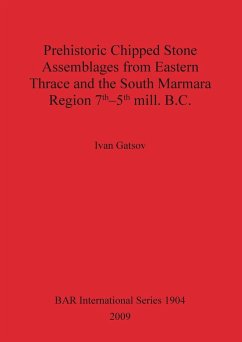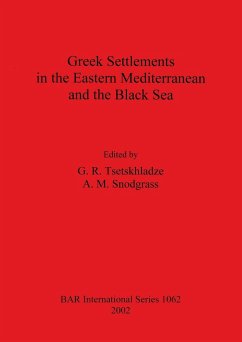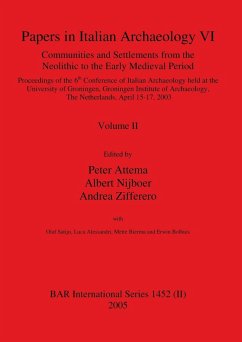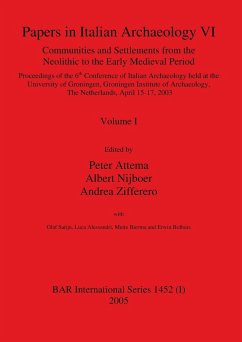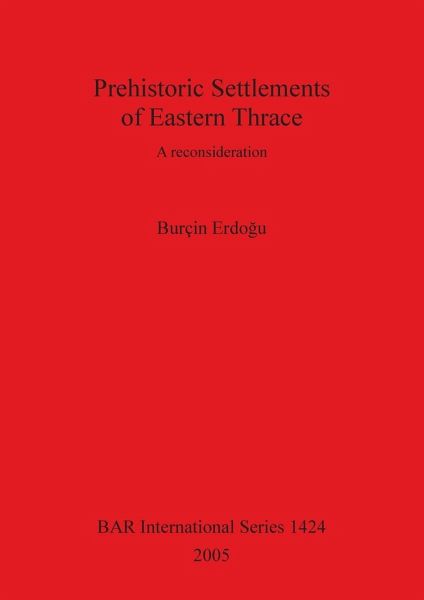
Prehistoric Settlements of Eastern Thrace
Versandkostenfrei!
Versandfertig in 1-2 Wochen
47,99 €
inkl. MwSt.

PAYBACK Punkte
24 °P sammeln!
This book focuses on the prehistoric settlements of Eastern Thrace (Turkish Thrace). Turkish archaeology, under the influence of the German archaeological tradition, is not founded upon innovative theoretical ideas but the documentation and collection ofdata. In this work the author attempts to break the traditional views and concentrates on archaeological interpretation and a theoretical discussion on the archaeology of Eastern Thrace. This study is the product of intensive fieldwork undertaken in the Edirne region of Eastern Thrace, and it offers new information and theories on the prehistor...
This book focuses on the prehistoric settlements of Eastern Thrace (Turkish Thrace). Turkish archaeology, under the influence of the German archaeological tradition, is not founded upon innovative theoretical ideas but the documentation and collection ofdata. In this work the author attempts to break the traditional views and concentrates on archaeological interpretation and a theoretical discussion on the archaeology of Eastern Thrace. This study is the product of intensive fieldwork undertaken in the Edirne region of Eastern Thrace, and it offers new information and theories on the prehistoric settlements of the region. Chapter I discusses the extensive and intensive surface survey results in the Edirne region. This project concerned the settlement history of the region from the Neolithic to the Early Bronze Age. It includes systematic surveys for both off-site and site scatters, and intra-site gridded collection at selected sites. Chapter II concentrates on settlement mobility in the prehistoric settlements of Eastern Thrace as well as settlement types. It introduces two models for settlement mobility - extensive mobility and restricted mobility. Chapter III discusses settlement territories in the prehistoric settlement of the Edirne region. Chapter IV investigates prehistoric stone axe factories in Eastern Thrace, which are unique in the prehistoric record of the Balkans and Anatolia. The next chapter deals with explanatory models for the apparent dramatic decrease in population of Eastern Thrace inthe Late Chalcolithic period. Chapter VI puts forward a new hypothesis related to the symbolic value of landscape for island colonization.



